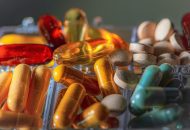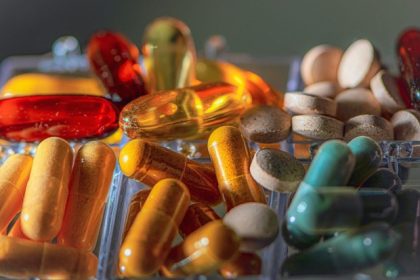Are You Getting Enough Iron?

WASHINGTON — Feeling tired and sluggish? If so, low iron could be to blame. Iron is an essential mineral necessary for several critical bodily functions. While most people get enough iron, women and athletes may be at a higher risk for an iron deficiency.
Here, we’ll explain what iron does in your body, break down the numbers on iron deficiencies and how it relates to exercise and leave you with tips to increase your levels.
What Iron Does in Your Body
Iron is an essential mineral, meaning that your body cannot produce it on its own and needs to get it from your diet. After ingesting iron, your body uses it to create hemoglobin, a protein in red blood cells. Here are the functions of iron:
- Transfers oxygen from your lungs to the rest of your body.
- Contributes to muscle, bone and soft tissue health,
- Aids physical growth, cognitive development and cell functions.
- Synthesizes hormones.
Your food contains iron in two forms: heme and non-heme. Sources of heme iron, present in meat and animal products, are more bioavailable than non-heme, found in plant-based food sources. Higher bioavailability means that your body can absorb it better and significantly influence your overall iron levels.
Iron Deficiency
When you don’t get enough iron, you may develop iron-deficiency anemia. Without enough hemoglobin, your red blood cells become smaller and oxygen transport decreases.
Symptoms of anemia and an iron deficiency may include weakness, low energy and fatigue even after sleeping, shortness of breath, a weak immune system, poor temperature regulation and difficulty concentrating.
The World Health Organization states that nearly two billion people worldwide have anemia, about 30% of the population, and almost 50% of these cases are caused by iron deficiency.
- A 2021 study found that 31.5% of women and 17.5% of men have anemia. During reproductive years, 33.7% of women and 11.3% of men have anemia.
- A 2020 study found that, from 2003 to 2020, 40% of 12- to 21-year old females in the United States had an iron deficiency, and 6% had anemia.
That is because children, pregnant people, and people with heavy menstruation are more likely to have an iron deficiency. Children need a lot of iron to develop and grow, pregnancy calls for higher iron needs and heavy menstruation causes blood loss.
Other groups at risk of an iron deficiency may include premature infants, blood donors, and people with medical conditions, including cancer, heart failure and gastrointestinal disorders that cause poor nutrient absorption.
Below is the Recommended Daily Allowance for iron. These numbers are for people who consume meat — vegetarians may need to consume 1.8 times more than these recommendations because they can’t absorb as much iron from plant-based foods.
- Adult Men: 8 milligrams per day.
- Adult Women, Before Menopause: 18 milligrams per day.
- If Pregnant: 28 milligrams per day.
- If Breastfeeding: 17 milligrams per day.
- Post-Menopausal Women: 8 milligrams per day.
Iron and Exercise
Another population at risk of iron deficiency is athletes — especially female athletes. Iron is important for athletic performance because your body needs to deliver oxygen to your muscles and metabolize energy.
A study found that 15 to 35% of female athletes have an iron deficiency, and 5 to 11% of male athletes have it. Women are at a higher percentage likely due to menstruation, but male athletes still seem to have higher rates of iron deficiency than male non-athletes.
Exercise produces a hormone called hepcidin, which may inhibit the body’s ability to absorb iron. Other reasons exercise is linked with low iron levels are still being investigated, but high-impact endurance sports like running may deplete red blood cells.
How to Increase Your Iron Levels
Only bloodwork from your doctor can determine your iron levels. They will likely prescribe an iron supplement to boost your levels if you have a deficiency or anemia.
Otherwise, health professionals recommend getting your nutrients from food before taking supplements.
According to the United States Department of Agriculture, the following foods have the highest iron levels, in this order:
- Animal-Based Foods containing heme iron:
- Lean meat, poultry, and seafood, specifically:
- Oysters.
- Beef Liver.
- Sardines.
- Beef.
- Chicken.
- Tuna.
- Turkey.
- Lean meat, poultry, and seafood, specifically:
- Plant-Based Foods containing non-heme iron:
- Fortified cereals.
- White Beans.
- Lentils.
- Spinach.
- Tofu.
- Kidney Beans.
- Chickpeas.
- Tomatoes.
Pumping Iron
Women, athletes and people with certain medical conditions may be at the highest risk of an iron deficiency. If you often feel tired and weak but sleep enough, ask your doctor to check your iron levels. Packing your diet with healthy, protein-dense foods, both meat and plant-based, can boost your levels naturally.
Our website content, services and products are for informational purposes only. The Well News does not provide medical advice, diagnosis or treatment. If you have medical concerns or questions, discuss with your health care professional.
You can reach us at [email protected] and follow us on Facebook and X (formerly known as Twitter)

























